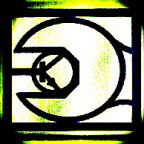*** Restricting New Posts to SD Premium Members ONLY *** (09 May 2025)
Just made a new account? Can't post? Click above.
Short to voltage and short to ground / fuse
- Dylan
-
 Topic Author
Topic Author
- Offline
- Moderator
-

- Belgium, Europe
Less
More
- Posts: 1461
- Thank you received: 327
8 years 8 months ago #6933
by Dylan
Short to voltage and short to ground / fuse was created by Dylan
Moved your topic to another section 
The following user(s) said Thank You: Monde
Please Log in or Create an account to join the conversation.
- Andy.MacFadyen
-

- Offline
- Moderator
-

Less
More
- Posts: 3353
- Thank you received: 1037
8 years 8 months ago #6938
by Andy.MacFadyen
" We're trying to plug a hole in the universe, what are you doing ?. "
(Walter Bishop Fringe TV show)
Replied by Andy.MacFadyen on topic Short to voltage and short to ground / fuse
The usual method for finding shorts or breaks is devide and conquer. Check at each end of the circuit and then check at a unit or connector between the two and contiinue until you narrow it down. Initially I usually first check fuses for voltage at both ends with with the test lamp connected to ground and also check they are properly in place, I try not to pull fuses out at least initially it is fairy common for fuses boxes to suffer corroded internal connections and by pulling the fuse out you might get the circuit working again at least in the short term without identifying the fault.
I handle relays differently there is no option other than pull the relay and check the powers, ground, control and load, usually you will find at least one other similar relay on the car you can play swaptronics with.
A fuse usually won't blow if you have a short to ground on the control wire of ground switched circuit, for example the control wire of an injector or ground switched relay this because the curent has to pass through the load ressistance before it shorts to ground.
I handle relays differently there is no option other than pull the relay and check the powers, ground, control and load, usually you will find at least one other similar relay on the car you can play swaptronics with.
A fuse usually won't blow if you have a short to ground on the control wire of ground switched circuit, for example the control wire of an injector or ground switched relay this because the curent has to pass through the load ressistance before it shorts to ground.
" We're trying to plug a hole in the universe, what are you doing ?. "
(Walter Bishop Fringe TV show)
Please Log in or Create an account to join the conversation.
- SniperDan
-

- Offline
- Senior Member
-

Less
More
- Posts: 78
- Thank you received: 28
8 years 8 months ago #6955
by SniperDan
"Without data, you are just another person with an opinion."
~W. Edwards Deming
Replied by SniperDan on topic Short to voltage and short to ground / fuse
To answer the shorted driver question, a driver controls a load, and therefore is downstream of the load in a series or parallel circuit. Since there is a load in place, the fuse would not blow, but whatever output is controlled by said driver would always be energized.
"Without data, you are just another person with an opinion."
~W. Edwards Deming
The following user(s) said Thank You: Monde
Please Log in or Create an account to join the conversation.
- SniperDan
-

- Offline
- Senior Member
-

Less
More
- Posts: 78
- Thank you received: 28
8 years 8 months ago - 8 years 8 months ago #6956
by SniperDan
To better illustrate this, we can look at this crude, kindergarten level drawing I made. This is a simple series circuit, with a motor in place as the load. This load is controlled by a transistor (driver).
A short to ground at point 1 would melt through the wiring as it is not fuse protected.
A short to ground at point 2 would blow the fuse, as current flow would overload it and blow it.
A short to ground at point 3 would energize the load without blowing the fuse ( a motor in this case)
A shorted driver at point 4 would also energize the load (if the emitter and collector were shorted together anyways)
A shorted driver at point 5 would have no effect on the circuit, as everything to this point is grounded all of the time.
"Without data, you are just another person with an opinion."
~W. Edwards Deming
Replied by SniperDan on topic Short to voltage and short to ground / fuse
To better illustrate this, we can look at this crude, kindergarten level drawing I made. This is a simple series circuit, with a motor in place as the load. This load is controlled by a transistor (driver).
A short to ground at point 1 would melt through the wiring as it is not fuse protected.
A short to ground at point 2 would blow the fuse, as current flow would overload it and blow it.
A short to ground at point 3 would energize the load without blowing the fuse ( a motor in this case)
A shorted driver at point 4 would also energize the load (if the emitter and collector were shorted together anyways)
A shorted driver at point 5 would have no effect on the circuit, as everything to this point is grounded all of the time.
"Without data, you are just another person with an opinion."
~W. Edwards Deming
Last edit: 8 years 8 months ago by SniperDan.
The following user(s) said Thank You: bernie.bendoraitis, Monde
Please Log in or Create an account to join the conversation.
- GeekDIYMechanic
-

- Offline
- Premium Member
-

8 years 8 months ago #6979
by GeekDIYMechanic
Replied by GeekDIYMechanic on topic Short to voltage and short to ground / fuse
A fuse will blow if it experiences current flow greater than its rating. So, if a short occurs causing excessive current to be experienced by fuse it will blow.
Let us assume a simple switched load circuit (ground side switched/pull down circuit),
power source -1> fuse -2> load -3> switch -4> ground
Some scenarios:
If somewhere in 1 there is a short to ground, you got big problems since there is no protection for the battery and wires. This will have full battery current to flow to ground, really, really bad.... The wires would melt and maybe cause a fire due to the amount of heat caused by this condition. This is why fuses are usually very close to the battery/power source.
If somewhere in 2 there is a short to ground, you will blow the fuse. Why? There is no load between power source and ground. Therefore max battery current will flow to ground causing the fuse to blow, but in a safe manner. No fires. Just that the fuse would keep blowing when replaced.
If somewhere in 3 there is a short, the load will stay on, regardless of switch state(on/off). And the fuse would not blow. What?? Why? Because there is a load between voltage source and ground. Think of it this way. Is there a difference between this ground/short and the switch providing ground? Nope.
If somewhere in 4 there is a short, you might not notice anything unless the ground isn't very good. The switch would control the load, and the circuit behavior would probably be good.
I have simply explained this so with simple explanations some details are left out. But the moral of the story is that you need exceeding current flow of the fuse to cause it to blow. So, it depends where the short to ground is, before or after the load.
In addition, some of your confusion is caused by the type of circuit you are dealing with, ground side switched or power side switch. Again, these circuit only differ on the location of the switch/control (before or after the load).
And yes, when debugging a circuit, I always verify common components that fail before assuming the world has ended, resulting in me having to take the car apart. LOL. So, I check fuses, relays, switches, loads, .... first.
I hope this helped.
Let us assume a simple switched load circuit (ground side switched/pull down circuit),
power source -1> fuse -2> load -3> switch -4> ground
Some scenarios:
If somewhere in 1 there is a short to ground, you got big problems since there is no protection for the battery and wires. This will have full battery current to flow to ground, really, really bad.... The wires would melt and maybe cause a fire due to the amount of heat caused by this condition. This is why fuses are usually very close to the battery/power source.
If somewhere in 2 there is a short to ground, you will blow the fuse. Why? There is no load between power source and ground. Therefore max battery current will flow to ground causing the fuse to blow, but in a safe manner. No fires. Just that the fuse would keep blowing when replaced.
If somewhere in 3 there is a short, the load will stay on, regardless of switch state(on/off). And the fuse would not blow. What?? Why? Because there is a load between voltage source and ground. Think of it this way. Is there a difference between this ground/short and the switch providing ground? Nope.
If somewhere in 4 there is a short, you might not notice anything unless the ground isn't very good. The switch would control the load, and the circuit behavior would probably be good.
I have simply explained this so with simple explanations some details are left out. But the moral of the story is that you need exceeding current flow of the fuse to cause it to blow. So, it depends where the short to ground is, before or after the load.
In addition, some of your confusion is caused by the type of circuit you are dealing with, ground side switched or power side switch. Again, these circuit only differ on the location of the switch/control (before or after the load).
And yes, when debugging a circuit, I always verify common components that fail before assuming the world has ended, resulting in me having to take the car apart. LOL. So, I check fuses, relays, switches, loads, .... first.
I hope this helped.
The following user(s) said Thank You: bernie.bendoraitis, Monde
Please Log in or Create an account to join the conversation.
- SniperDan
-

- Offline
- Senior Member
-

Less
More
- Posts: 78
- Thank you received: 28
8 years 8 months ago #7135
by SniperDan
"Without data, you are just another person with an opinion."
~W. Edwards Deming
Replied by SniperDan on topic Short to voltage and short to ground / fuse
I think you are having trouble understanding what a short is.
A short, whether to ground or to power, is an electrical contact outside of the designed circuit. A short to ground is where a circuit has made contact to ground outside of it's designed path. I.e. a control wire rubbing on an exhaust manifold bolt. This is not an open circuit failure. There is still current flow in this circuit, but it is not going through the normal path to ground, or through whatever control device is there to control it.
A short, whether to ground or to power, is an electrical contact outside of the designed circuit. A short to ground is where a circuit has made contact to ground outside of it's designed path. I.e. a control wire rubbing on an exhaust manifold bolt. This is not an open circuit failure. There is still current flow in this circuit, but it is not going through the normal path to ground, or through whatever control device is there to control it.
"Without data, you are just another person with an opinion."
~W. Edwards Deming
Please Log in or Create an account to join the conversation.
- Noah
-

- Offline
- Moderator
-

- Give code definitions with numbers!
Less
More
- Posts: 4935
- Thank you received: 1100
8 years 8 months ago - 8 years 8 months ago #7168
by Noah
This is a great video to help strengthen your foundational knowledge.
"Ground cannot be checked with a 10mm socket"
Replied by Noah on topic Short to voltage and short to ground / fuse
This is a great video to help strengthen your foundational knowledge.
"Ground cannot be checked with a 10mm socket"
Last edit: 8 years 8 months ago by Noah.
The following user(s) said Thank You: Monde
Please Log in or Create an account to join the conversation.
Time to create page: 0.275 seconds

